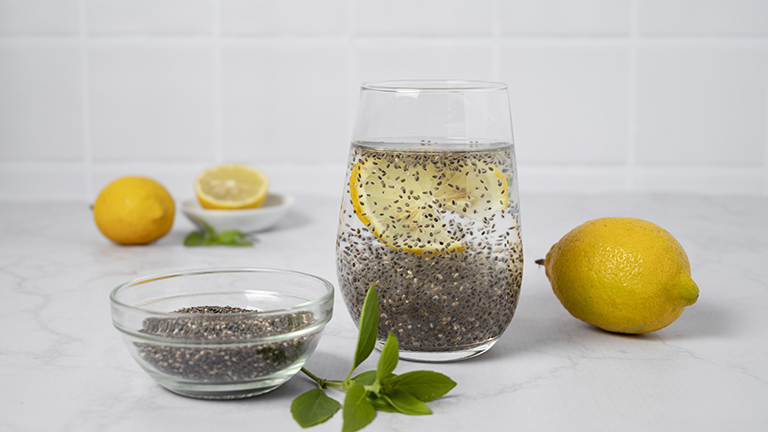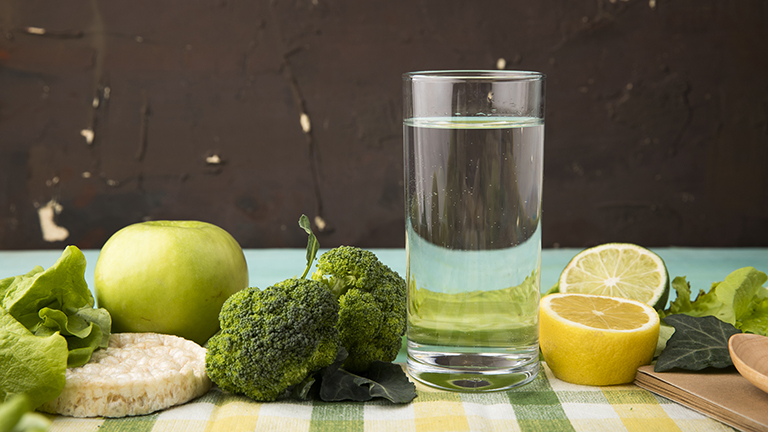Metal detox is the process of eliminating toxic metals from the body to restore health, improve energy levels, and prevent chronic diseases. Heavy metals like lead, mercury, arsenic, and cadmium can accumulate over time due to environmental exposure, contaminated food, or industrial contact. These metals interfere with cellular functions, disrupt enzymatic activity, and can lead to long-term health consequences if not addressed. A proper metal detox aims to remove these toxins safely and efficiently while supporting the body’s natural detoxification pathways.
Importance of Heavy Metal Detox for Health
Heavy metal detox is not merely a wellness trend; it is a crucial step for maintaining overall health. Accumulation of toxic metals can lead to fatigue, cognitive decline, digestive issues, and weakened immunity. Detoxifying metals enhances liver and kidney function, reduces oxidative stress, and can even improve mental clarity. Globally, awareness of heavy metal exposure is increasing, especially in countries like the USA, UK, and Canada, where industrial pollution and processed foods contribute to metal accumulation.
Causes of Heavy Metal Accumulation
Environmental Exposure to Metals
Environmental pollution is one of the primary causes of heavy metal accumulation. Lead contamination from old pipes, mercury from industrial waste, and cadmium from batteries and plastics are prevalent in many urban and rural areas. Airborne particles from factories and vehicle emissions can also deposit metals into soil and water, leading to indirect exposure through everyday activities. This exposure is particularly concerning because metals are not easily excreted from the body, leading to gradual accumulation over years.
Contaminated Food and Water Sources
One of the most common sources of heavy metals is the food we eat. Fish such as tuna and swordfish often contain high levels of mercury, while rice and grains can accumulate arsenic from contaminated soil. Processed foods packaged in metallic containers may also contribute to metal exposure. Water contamination, especially in areas with outdated plumbing or industrial runoff, introduces additional heavy metals into daily consumption. Maintaining awareness of food and water quality is a key step in preventing metal overload.
Industrial and Household Metal Exposure
Beyond environmental factors, metals are present in many household items. Cosmetics, cookware, and cleaning products may contain aluminum or lead. Workers in industries like mining, manufacturing, or electronics may face occupational exposure to metals daily. Even small, repeated exposures in these settings can build up in the body, emphasizing the importance of regular detoxification practices.
Symptoms of Heavy Metal Toxicity
Physical Symptoms of Metal Overload
Heavy metal accumulation manifests in a variety of physical symptoms. Chronic fatigue, muscle weakness, joint pain, and digestive disturbances are common signs. Skin changes, hair loss, and frequent headaches may also indicate the presence of toxic metals. Detecting these early can prevent long-term damage and facilitate effective detox strategies.
[INSERT_ELEMENTOR id=”5792″]
Cognitive and Neurological Effects
Cognitive impairment, memory loss, mood swings, and difficulty concentrating are often linked to heavy metal toxicity. Metals like mercury and lead are neurotoxic, directly impacting brain function. In children, exposure can lead to developmental delays and learning difficulties. Recognising these neurological signs is essential for timely intervention and metal detox.
Metal Detox Methods
Natural Remedies for Metal Detox
Natural metal detox remedies utilise foods, herbs, and lifestyle strategies to facilitate metal removal. Ingredients such as cilantro, chlorella, garlic, and spirulina are renowned for their chelating properties, binding metals and assisting in excretion. Green leafy vegetables, turmeric, and lemon juice support liver detoxification and improve antioxidant defences. A diet rich in these natural agents can enhance the body’s ability to cleanse itself without harsh interventions.
Chelation Therapy: Benefits and Risks
Chelation therapy is a medical treatment that involves the administration of chelating agents to remove heavy metals from the bloodstream. While effective, it must be performed under strict medical supervision to avoid side effects such as kidney stress or mineral depletion. Chelation is commonly used for severe metal poisoning cases, particularly with lead and mercury, and can complement natural detox methods for optimal results.
Supplements That Support Metal Detox
Certain supplements play a critical role in metal detoxification. Activated charcoal, zeolite, and modified citrus pectin help bind metals in the digestive tract for excretion. Antioxidants like vitamin C, selenium, and glutathione neutralise oxidative damage caused by metals, supporting cellular repair. Regular supplementation, combined with diet and lifestyle modifications, can significantly enhance detox outcomes.
Diet and Lifestyle for Metal Detox
Foods That Help Detox Heavy Metals
A metal detox diet focuses on nutrient-dense, whole foods that support liver and kidney function. Cruciferous vegetables, such as broccoli and cauliflower, boost detox enzymes, while garlic and onions promote metal elimination. Fiber-rich foods aid in binding metals in the intestines, and fermented foods enhance gut health, which is essential for detoxification. Hydrating with pure water and herbal teas helps flush toxins from the system efficiently.
Lifestyle Changes to Prevent Metal Accumulation
Preventing further metal exposure is as important as detoxifying existing metals. Avoiding processed foods, reducing consumption of high-mercury fish, and using filtered water are practical steps. Minimising the use of metal-containing cosmetics and household products also reduces risk. Additionally, engaging in regular exercise improves circulation and promotes natural detox pathways through sweat.
Hydration and Detoxification
Water is a vital component of any metal detox strategy. Adequate hydration supports kidney function and helps the body eliminate metals through urine. Herbal teas and natural detox drinks, including lemon water and green tea, provide additional antioxidant support and enhance the body’s cleansing processes. Maintaining hydration is simple yet highly effective in accelerating detoxification.
Monitoring and Safety
How to Test for Heavy Metal Toxicity
Regular testing is crucial for identifying metal accumulation before symptoms become severe. Blood, urine, and hair analysis are commonly used to detect heavy metals. Testing allows individuals to tailor detox strategies based on the type and level of metals present. Consulting healthcare professionals ensures accurate interpretation and safe detox protocols.
Precautions During Metal Detox
While metal detox is beneficial, it must be approached cautiously. Overly aggressive detox methods can lead to nutrient depletion, dehydration, or kidney strain. A balanced approach that includes diet, supplementation, and medical supervision when necessary ensures safety and effectiveness. Gradual detoxification also allows the body to adjust without triggering negative reactions.
Expert Tips and FAQs
Expert Recommendations on Metal Detox
Medical experts recommend a combination of dietary, lifestyle, and, if needed, medical interventions for metal detox. Dr. George D. Lundberg emphasizes starting with dietary changes and natural chelation methods before considering pharmaceutical chelation. Experts also highlight the importance of antioxidant support, hydration, and gradual detox for optimal results.
[INSERT_ELEMENTOR id=”5108″]
Frequently Asked Questions About Metal Detox
Q1: How long does a metal detox take?
A1: The duration depends on metal type, level of accumulation, and method used. Natural detox may take weeks to months, while chelation therapy can be faster under supervision.
Q2: Can children undergo metal detox?
A2: Yes, but children require careful monitoring and mild natural detox methods to ensure safety.
Q3: Is metal detox safe for pregnant women?
A3: Pregnant women should consult healthcare providers before any detox to avoid risks to the fetus.
Q4: Are there side effects of metal detox?
A4: Mild detox can cause headaches, fatigue, or digestive changes. Severe methods may require medical supervision.
Q5: Can lifestyle changes alone prevent metal accumulation?
A5: While lifestyle changes help reduce exposure, accumulated metals may still require active detox strategies for removal.
Conclusion
Metal detox is a vital health practice to eliminate toxic metals, restore energy, and prevent long-term illnesses. Combining natural remedies, dietary adjustments, supplements, and medical interventions provides a comprehensive approach to safe and effective detoxification. By adopting these strategies, individuals in the USA, UK, Canada, and worldwide can protect themselves from environmental toxins and maintain optimal health. Regular monitoring, proper hydration, and lifestyle vigilance ensure that metal detox remains safe and effective, supporting a lifetime of well-being.
Expert Insights on Heavy Metal Detoxification
Dr. Alicia Armitstead – Integrative Health Specialist
Dr. Alicia Armitstead, founder of Healing Arts in Manhattan, emphasizes the significance of addressing heavy metal toxicity. She notes that metals like lead, mercury, and cadmium can adversely affect various body systems, including the nervous, cardiovascular, and renal systems. Dr. Armitstead advocates for personalized detox programs, highlighting the potential benefits of supplements containing chelating agents like zeolite clinoptilolite. Her clinical experience underscores the importance of tailored detoxification strategies to mitigate health risks associated with metal accumulation. New York Post
Amen Clinics – Clinical Perspective
Amen Clinics, a renowned mental health and wellness center, advises caution when considering heavy metal detoxification. They caution that aggressive detox methods without professional guidance can lead to adverse effects such as kidney stress and mineral deficiencies. Their approach emphasizes the use of natural detox strategies, including antioxidant-rich diets and professional supervision, to safely remove metals while maintaining nutritional balance. amenclinics.com
Dr. Josh Axe – Clinical Nutritionist
Dr. Josh Axe, a certified doctor of natural medicine, advocates for dietary interventions in heavy metal detoxification. He recommends incorporating foods like garlic, onions, and flax seeds, which contain sulfur and omega-3 fatty acids, to support the body’s natural detox processes. Dr. Axe also suggests staying hydrated and consuming vegetable juices to aid in flushing out toxins. Dr. Axe
Healthline – Medical Overview
Healthline provides a comprehensive overview of heavy metal detoxification methods. They discuss both medical treatments, such as chelation therapy, and natural approaches, including dietary changes and lifestyle modifications. Healthline emphasizes the importance of consulting healthcare providers before initiating any detox regimen, especially when considering chelation therapy, due to potential risks. Health


